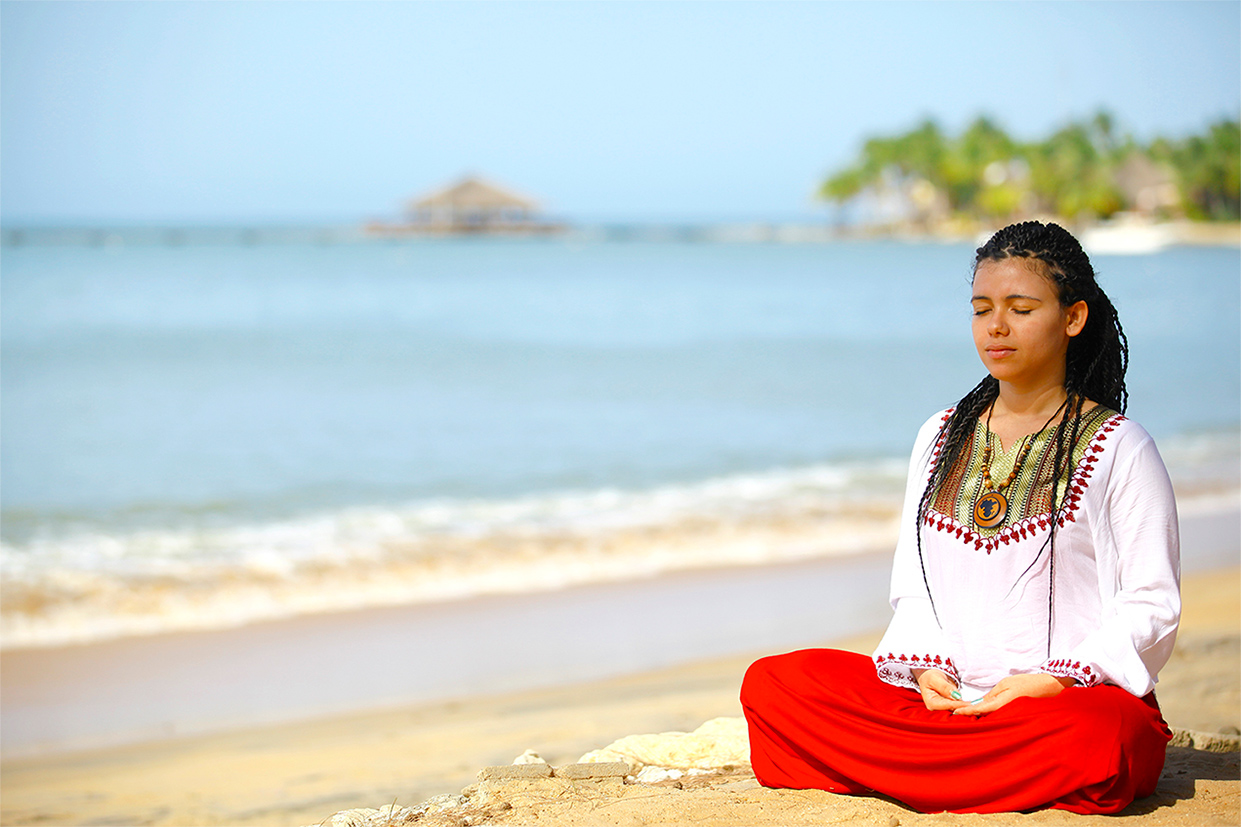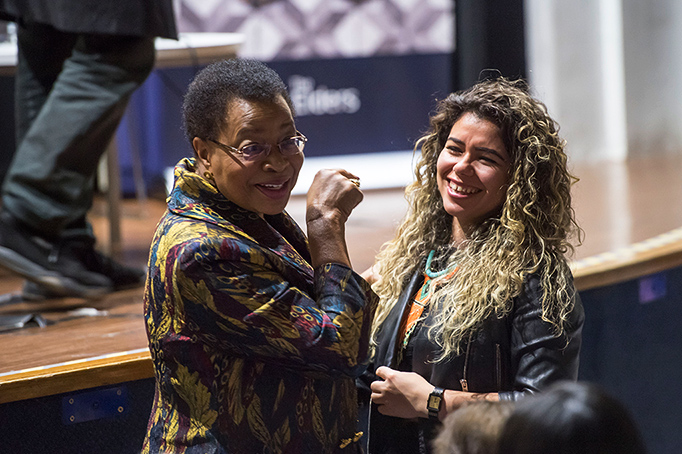Interview by Visual Collaborative
June 2019 5 min read

Aya Chebbi is a Pan-African activist from Tunisia, She presently serves as the first ever African Union (AU) Youth Envoy, working with youth across the continent. Her voice was pivotal during the 2010 Arab Spring and Revolution of Dignity. As one of the main features in our Voyager interview series, we discuss the person, evolution of her work in activism, strategic alliances and the influence of her heritage.
(VC) Outside your public service work of activism, who is Aya Chebbi?
(Aya) Lover of the sea and ocean, crazy dancer, enjoys hip hop music and photography.
(VC) Foreign aid to African countries could help their communities. Some economists may criticize this because of the long term implications of borrowing and national debt. What are your general thoughts on this and how it relates to your own work?
(Aya) Pan africanism refuses charity and foreign aid and advocates for self–determination, ownership of our destiny and democratic emancipation in post-colonial Africa. Besides, remittances from our diaspora are three times greater than aid. Surely, foreign aid with good intentions had impactful projects on the ground, especially when they’re citizen-driven and youth-led, but Africans are increasingly able agents of their own solutions. As we work into our self-centered development, and financially independent African Union from external funding, we need to move towards equal partnership especially that the global agenda 2030 recognizes that the north is not anymore “helping” the south but it’s a North-South agenda.

Photo by Photo of Graça Machel and Aya Chebbi Courtesy of Aya Chebbi
(VC) What does being Pan-African mean to you and how does it mold the themes of your own work?
(Aya) Being a Pan-African means that I live everyday with the obsession that, with African solidarity we can solve all of Africa’s challenges, with the idea that my liberation is your liberation, my access to education, my access to power, my access to resources, my access to the internet is YOUR access. That is the ultimate act of solidarity. It means that everyday, I work towards an African unity of voice and action that transcends borders, ethnicity, skin color, language, political affiliation etc. My daily work is about organizing youth to turn their marginalization into a collective identity and building a movement of pan-Africanists.
(VC) In your quiet or noisy moments how do you get inspired. What makes Aya be of public service and work the way she does. Do you seek spirituality or get psychological like others to manage exhaustion or burnout?
(Aya) It is still a work in progress to manage exhaustion and burnout. Since last year, I started exercising some healthy habits like; acknowledge failure, focus my energy instead of saying “yes” to support everyone, take breaks when needed, take longer showers with my favorite incense flavors, massage my head, watch no news before bed and when I wake up etc.
I also run a mentorship program called YPHEM which gives me a lot of inspiration of why I should continue to do what I am doing and serve, the experience with my mentees reminds me of my younger self looking for my identity and my mission, and I practice with them the exercises I share on gratefulness, self-love, meditation and taking your strength from being your truthful self.
Video courtesy of Aya Chebbi
(VC) What do you tell the aspiring young woman or entrepreneur about success and business risk?
(Aya) Where you sit when you’re old shows where you stood in your youth, if you don’t take risks when you’re young, then when would you? being young by definition means radical, curious, free, and adventurous, and being female means nurturing, empathetic, intuitive and radiant. So, to my aspiring young women, imagine how blessed you are to be young and female, every failure means you are going to the next level and every risk is an opportunity for you.
(VC) At this stage of your professional milestones and accomplishments, If you could collaborate with any brand or public figure in business who would it be and why?
(Aya) They are many. It depends if the collaboration is for RadicalAya, Afresist, YPHEM or a particular campaign. I think brands should engage more in campaigning for social justice. For business executives, I would work with leaders who practice gender equality and transparency in their ethics.
(VC) Does your Tunisian heritage play a significant part in topics of your work or would you say you move with the current of the times such as migration etc?
(Aya) Definitely, where I come from shaped my worldview. I come from a small village in the Northwest at the crossroad of Tunisian-Algerian culture, with Arabic tongue, indigenous Amazigh Maghrebian identity, conscious about french colonial legacy which manifests in regional disparities and inequality. The mosaic of Tunisian history and people’s diversity has built my fluid identity and curiosity about new cultures and experiences which led me to travel the continent like a nomad living in homes and learning about my Africanity. The mediterranean tragedy has been a reality on the shores of my country for decades and with my cousin’s experience, who was radicalized by Daesh in 2013, influenced my academic trajectory, my writings and activism.
(VC) What kind of work or impact can the African continent and its diaspora expect from Aya Chebbi within the next 36 months?
(Aya) I genuinely hope to make my small contribution to building the Africa We Want by uniting and mobilizing our youth in Africa and the diaspora around positive collective action and by creating pan-African spaces for young people to thrive and serve our continent.